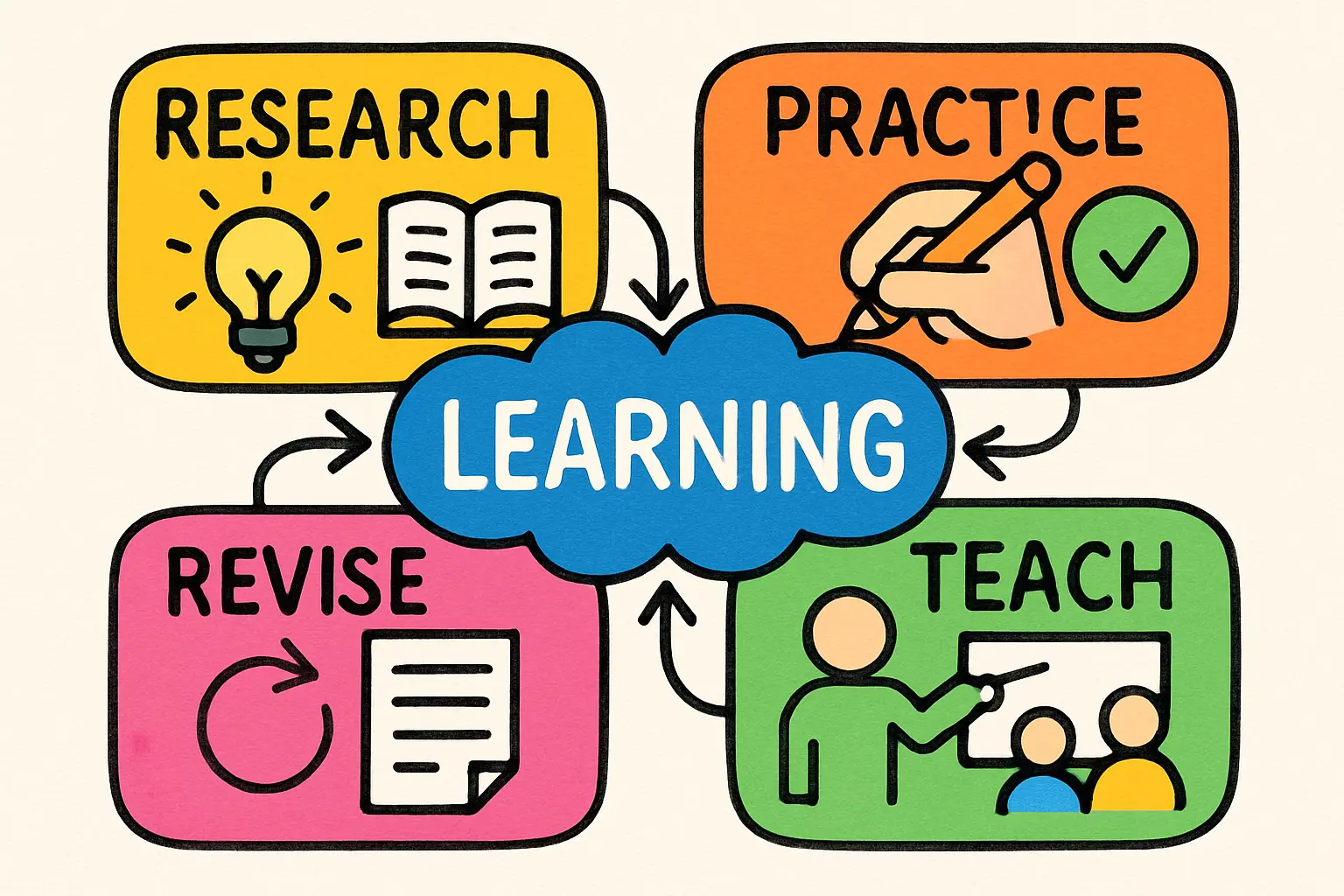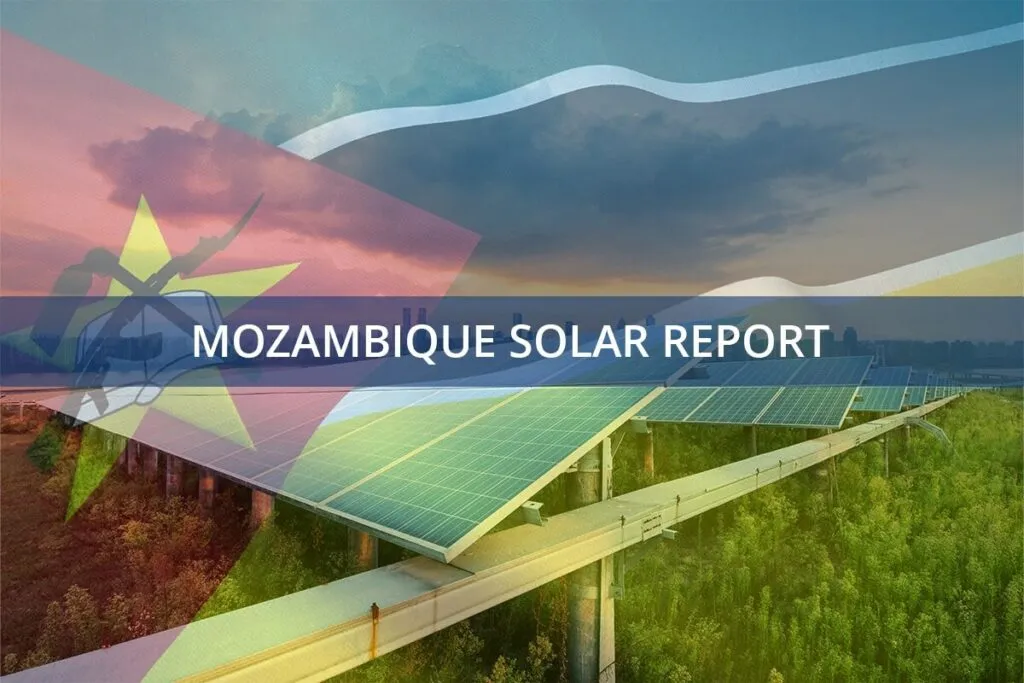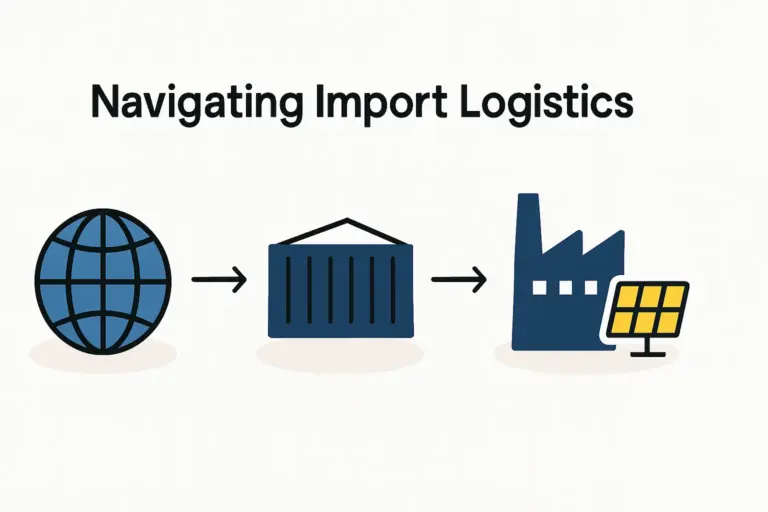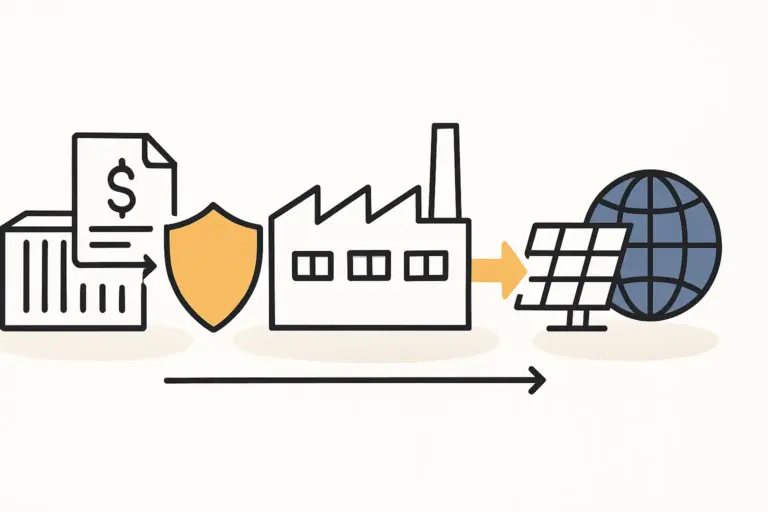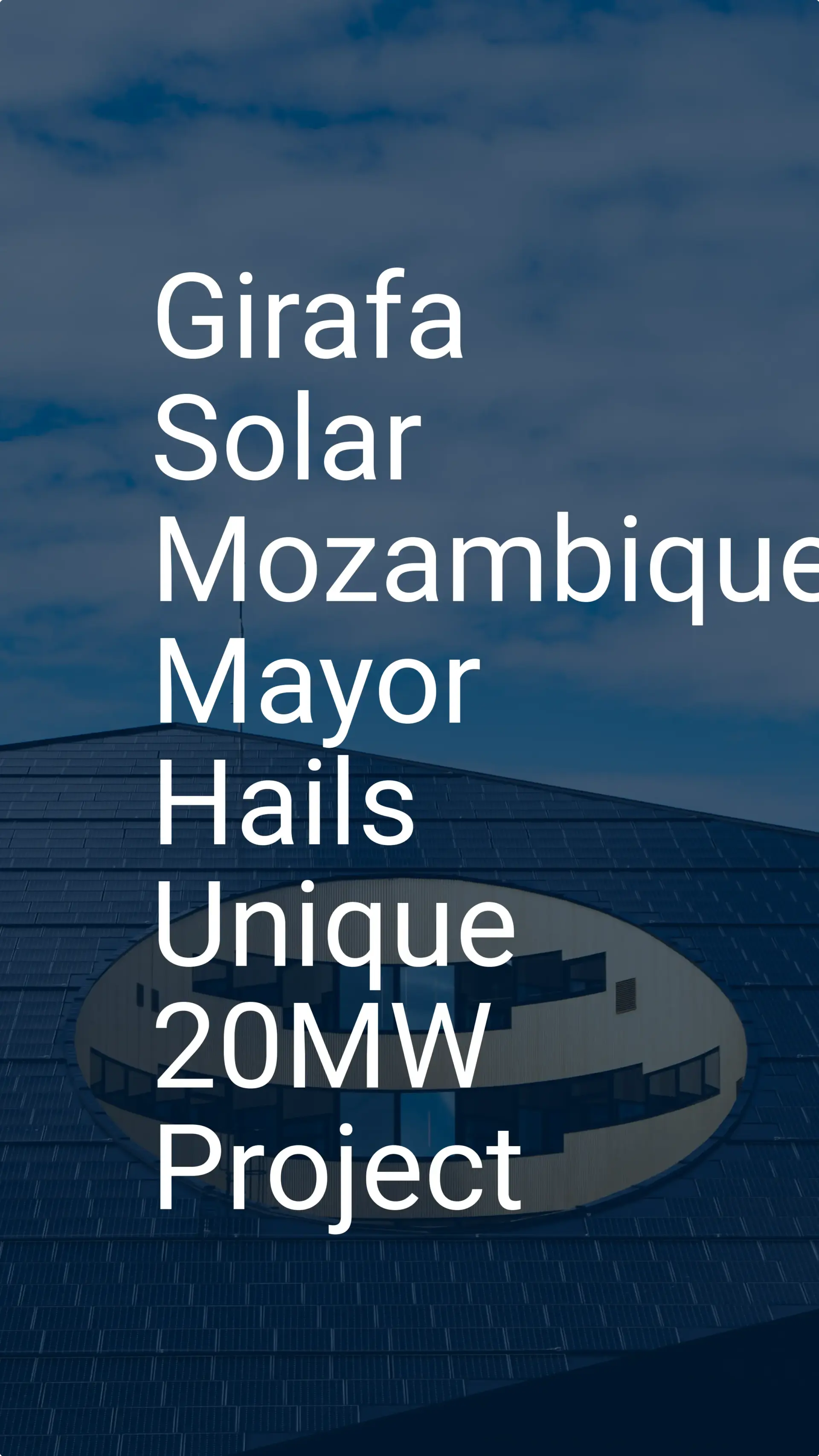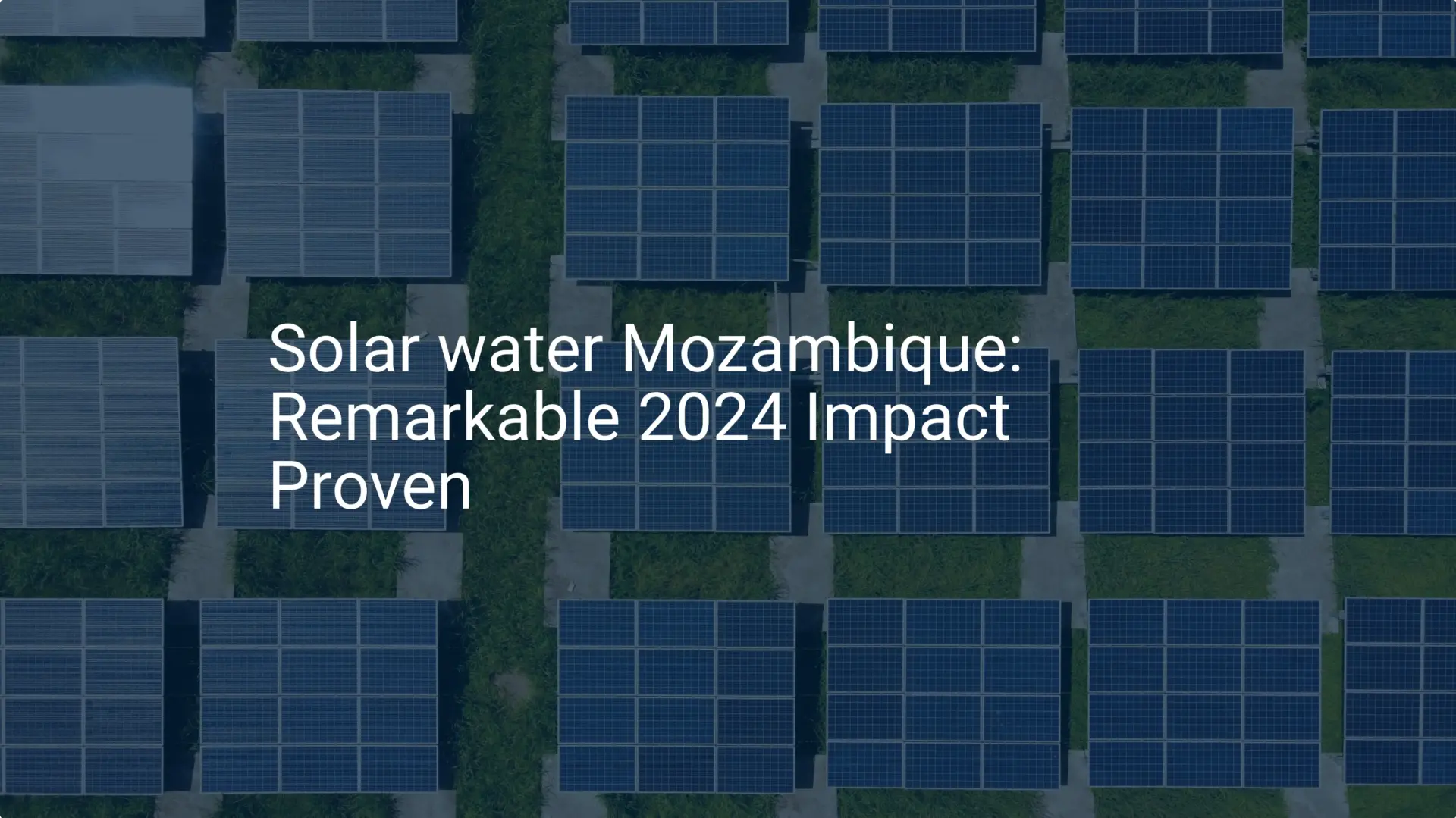An entrepreneur in Mozambique looks at the country’s vast solar potential—over 2,700 hours of sunshine annually—and sees a clear opportunity. The demand for reliable energy is growing, and local manufacturing could create jobs, reduce import dependency, and build a strategic national industry.
Yet, one formidable barrier stands between this vision and reality: securing the substantial capital required to build a solar module factory.
Traditional commercial banks often view such a project as high-risk, especially if the entrepreneur is new to the manufacturing sector. They may offer short loan terms, high interest rates, and prohibitive collateral requirements. It’s a familiar challenge for industrial pioneers. However, a powerful alternative financing route exists, one specifically designed to support transformative projects in emerging economies: Development Finance Institutions (DFIs) and global climate funds.
This guide explores how to understand and access these funding sources for a solar manufacturing venture in Mozambique or the Southern African region.
Why Traditional Financing Can Be a Hurdle for New Solar Ventures
Commercial banks primarily assess loan applications based on historical cash flow, existing assets, and a low-risk profile. A new solar module factory presents several challenges to this model:
- High Upfront Capital: The initial investment for machinery, infrastructure, and working capital is significant.
- Lack of Precedent: As a nascent industry in the region, there may be few comparable projects for banks to use as a benchmark.
- Long-Term Payback: A factory’s return on investment is realized over many years, a timeline that can conflict with the shorter loan tenures preferred by commercial lenders.
This gap between a project’s long-term strategic value and its short-term risk profile is precisely where development finance steps in.
The Strategic Alternative: Development Finance Institutions (DFIs) and Climate Funds
DFIs are specialized financial institutions, often backed by national governments or international bodies, with a mandate to support private sector development in emerging markets. Unlike commercial banks, they have a ‘double bottom line’: they seek not only a financial return but also a measurable, positive developmental impact.
Understanding the DFI Mandate
A DFI’s decision to invest goes beyond pure profit. They actively look for projects that contribute to:
- Economic Growth: Creating skilled jobs and fostering new industries.
- Infrastructure Development: Building local capacity for essential goods like solar panels.
- Climate Action: Promoting renewable energy and reducing carbon emissions.
A solar module factory in Mozambique aligns perfectly with these objectives, making it an attractive candidate for DFI support.
How Climate Funds Fit In
Working in tandem with DFIs are global climate funds, such as the Green Climate Fund (GCF). These are large pools of capital dedicated exclusively to financing projects that contribute to climate change mitigation and adaptation. Setting up a local solar panel manufacturing facility is a clear example of a mitigation project, as it helps accelerate the transition to clean energy.
Key Financial Instruments for Your Project
DFIs and climate funds offer financial tools that are far more flexible and suitable than a standard commercial loan. Understanding these options is crucial when preparing a proposal.
- Concessional Loans: These are loans with terms more favorable than the market offers—such as lower interest rates, longer repayment periods (e.g., 10-15 years), or grace periods during the factory’s initial ramp-up phase. This reduces financial pressure while the business establishes itself.
- Equity Investments: Some DFIs may offer to take an equity stake in the project. This means they become a long-term partner, sharing both risks and rewards. This partnership sends a powerful signal of confidence to other potential investors.
- Guarantees: A DFI can provide a guarantee to a local commercial bank, effectively insuring a portion of the loan. This de-risks the project for the local bank, making it more willing to lend.
- Blended Finance: This involves strategically using DFI or public funds to attract private capital. For a large project, a DFI might provide 20-30% of the initial investment for a solar panel factory, making the entire venture significantly more attractive to commercial lenders and private equity investors.
Major Development Finance Players in Southern Africa
Several prominent DFIs are active in Mozambique and the wider Southern African region. Entrepreneurs should research the specific priorities and application channels for each.
The World Bank Group (IFC & MIGA)
The International Finance Corporation (IFC) is the private sector arm of the World Bank. It focuses on financing and providing advisory services for private ventures in developing countries. The Multilateral Investment Guarantee Agency (MIGA), also part of the group, offers political risk insurance—an invaluable tool for protecting large investments against non-commercial risks.
African Development Bank (AfDB)
The AfDB is a leading pan-African institution dedicated to financing development projects. Its ‘High 5’ priorities include ‘Light up and Power Africa,’ making renewable energy manufacturing a core area of interest.
Development Bank of Southern Africa (DBSA)
With a specific mandate for the SADC region, the DBSA is a key player in financing infrastructure and industrial projects. Its deep regional knowledge makes it a particularly relevant partner for a venture in Mozambique.
European Investment Bank (EIB)
As the lending arm of the European Union, the EIB is one of the world’s largest financiers of climate action. Through its development branch, EIB Global, it actively invests in renewable energy projects outside the EU.
KfW and DEG (German Development Bank)
Germany’s KfW Development Bank and its subsidiary DEG are major global players in development finance, with a strong focus on renewable energy and sustainable industry. Based on experience from J.v.G. turnkey projects, German engineering and financing expertise are often well-aligned. For an entrepreneur focused on planning and setting up a turnkey solar module production line, exploring partnerships with institutions like DEG can be highly beneficial.
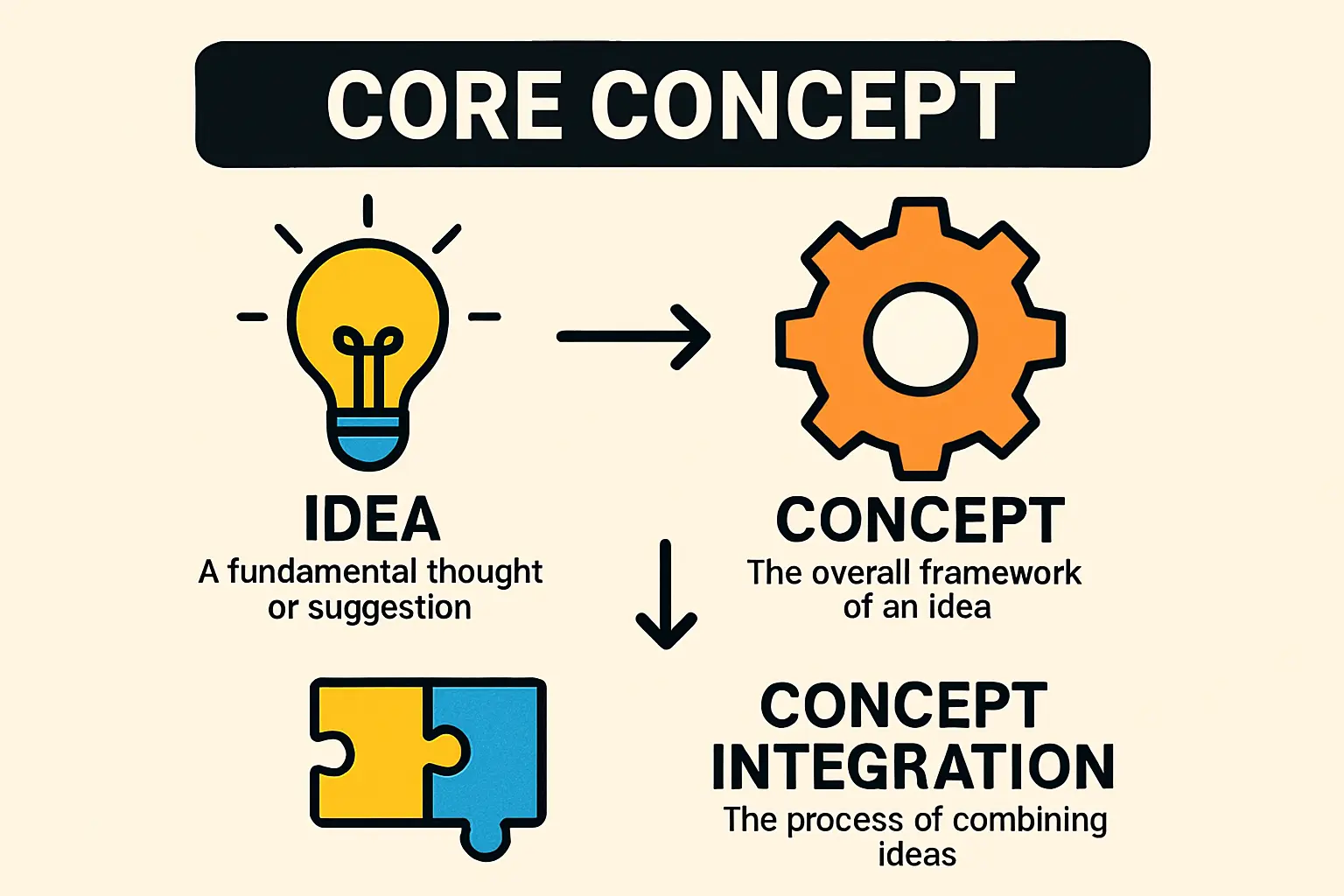
Accessing Global Climate Funds
Beyond DFIs, large-scale climate funds present another avenue.
- The Green Climate Fund (GCF): As the world’s largest dedicated climate fund, the GCF finances large-scale projects through accredited entities. Accessing GCF funding typically means working through a national institution in Mozambique known as a ‘National Designated Authority’ (NDA) or partnering with an accredited international institution like a DFI.
- The Global Environment Facility (GEF): The GEF has a long history of funding projects related to biodiversity, climate change, and land degradation. It operates through a network of implementing agencies, including the UNDP and the World Bank.
Preparing a Bankable Proposal: What DFIs Look For
Securing development finance is a rigorous process involving extensive due diligence. This means a successful proposal must be comprehensive and professional.
1. A Robust Business Plan
This is the cornerstone of any application. It must be grounded in detailed market analysis, realistic financial projections, a clear operational strategy, and a competitive assessment. For guidance, entrepreneurs can review documents such as A Sample Business Plan for a Solar Module Factory.
2. Environmental and Social Governance (ESG) Impact
DFIs require a thorough assessment of the project’s non-financial impact. The proposal must clearly articulate how the factory will create jobs (especially for local communities), ensure workplace safety, manage waste responsibly, and contribute to Mozambique’s national development and climate goals.
3. Technical Feasibility and Proven Technology
The plan must demonstrate that the chosen technology is reliable, efficient, and appropriate for the local context. The technical partner’s credibility and the soundness of the engineering plan are closely examined. This is where partnering with an experienced engineering firm provides a significant advantage.
4. A Strong and Credible Management Team
DFIs invest as much in the people as they do in the project. The proposal must showcase a management team with the business acumen and proven track record needed to execute a complex industrial project.
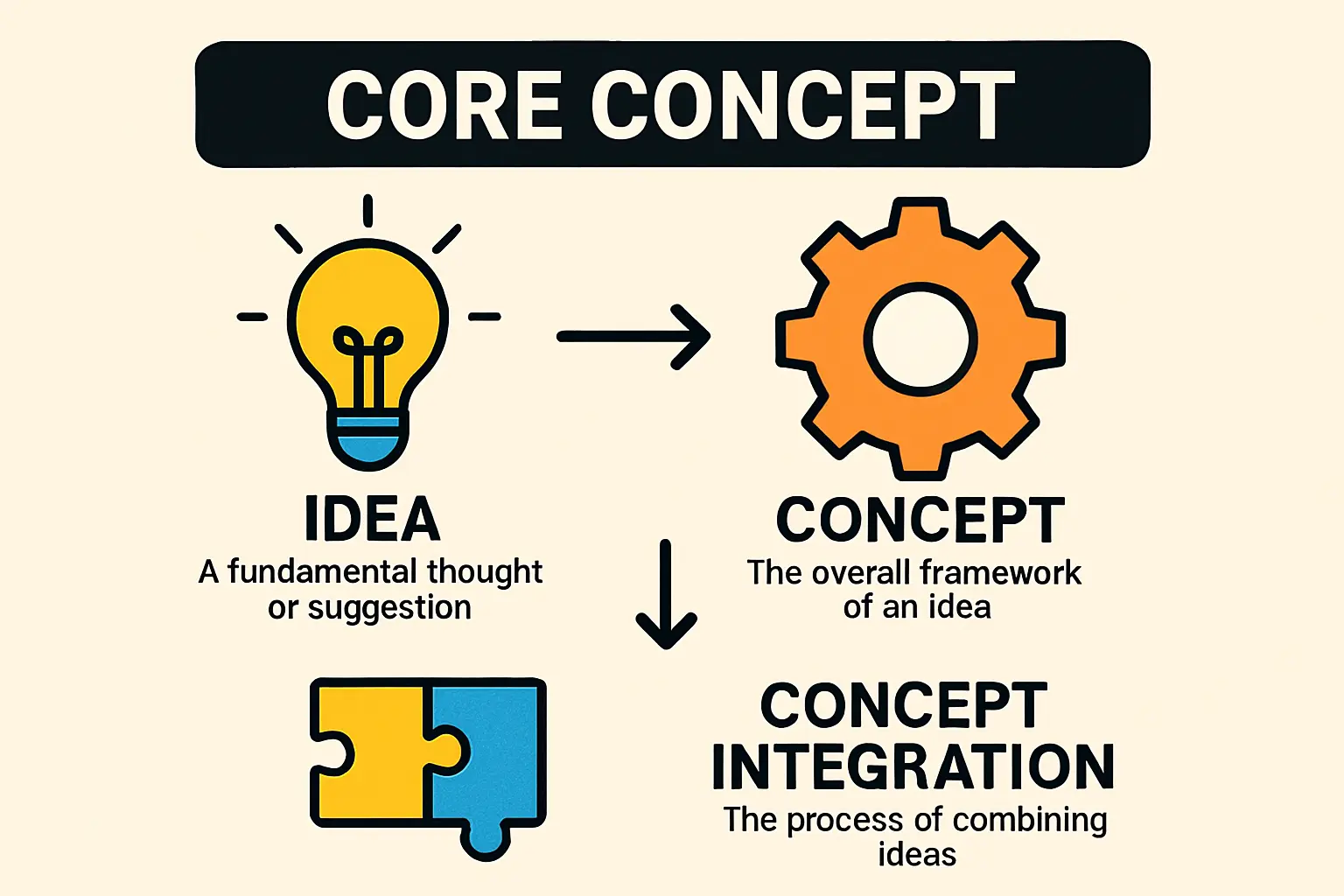
Frequently Asked Questions (FAQ)
How long does the DFI application and approval process typically take?
Entrepreneurs should be prepared for a long timeline. Due to the detailed due diligence involved, the process from initial contact to financial close can take anywhere from 6 to 18 months, sometimes longer.
Do I need a local partner in Mozambique to secure DFI funding?
While not always mandatory, having a strong local partner is highly advantageous. It demonstrates commitment to the local economy and helps navigate the local regulatory and business landscape.
What is the typical minimum investment size that DFIs consider for direct financing?
This varies, but for direct project financing, many DFIs look for projects with a total investment cost of at least USD 5 million to 10 million. Smaller projects may be funded through intermediary local banks that have credit lines from the DFI.
Can I get 100% of the project cost financed by a DFI?
This is highly unlikely. DFIs expect the project sponsors (the entrepreneurs) to have a significant equity stake in the venture, typically ranging from 20% to 40% of the total project cost. This ensures ‘skin in the game’ and alignment of interests.
The Path Forward: From Concept to Capital
Financing a solar module factory in Mozambique through development banks and climate funds is a viable and powerful strategy. It aligns the project with national and global development goals, providing access to patient, long-term capital that the commercial market may not offer.
The process is demanding and requires meticulous preparation. A compelling business case, a clear demonstration of positive ESG impact, and a credible technical plan are non-negotiable. For entrepreneurs embarking on this journey, the first step is building a foundational understanding of how to start a solar panel manufacturing business. By preparing thoroughly, they can position their vision not just as a business opportunity, but as a strategic investment in Mozambique’s future.
